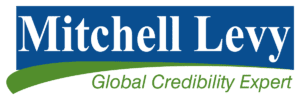Open Doors Group: Thought Leaders in Creating MOOCs
 For the past four weeks, I’ve been teaching a MOOC (a Massive Open Online Course) on rapid book publishing for educators (i.e., how to write a book in 20-60 hours!). Although I’m the official instructor for the MOOC, I was fortunate enough to have the non-profit I’m involved with, the Open Doors Group (ODG), support the creation of the course; they pulled everything together so swimmingly and quickly, I just have to sing my praise to them. Here’s a brief description of the ODG:
For the past four weeks, I’ve been teaching a MOOC (a Massive Open Online Course) on rapid book publishing for educators (i.e., how to write a book in 20-60 hours!). Although I’m the official instructor for the MOOC, I was fortunate enough to have the non-profit I’m involved with, the Open Doors Group (ODG), support the creation of the course; they pulled everything together so swimmingly and quickly, I just have to sing my praise to them. Here’s a brief description of the ODG:
ODG seeks to lower barriers to available, affordable education for all learners including cost, credentials, digital access, geography, handicaps, and more.
As a thought leader architect and CEO of THiNKaha, Inc., I’ve been helping authors write and publish their books for seven years. We’ve developed a knack for publishing books as quickly, efficiently, and effortlessly as possible—we’ve become experts in rapid book publishing as we’ve published hundreds of books since we first started. I’m able to exhibit my thought leadership in this field in teaching this MOOC but I really couldn’t have done it without the Open Doors Group. As the instructor, I was responsible for designing the content and for driving my vision of the course. The ODG walked me through the process and was able to take my content and put it into a MOOC—what’s really cool about MOOCs is that they’re a combination of online learning (OLT) and instructor-led training (ILT). I pre-recorded videos for certain lessons (modules) and students are invited and encouraged to participate.
In short, the ODG is able to work with any thought leader to create a MOOC on any topic.
They were able to package myself and my content seamlessly into a MOOC…and we got over 800 students enrolled!
If you’re looking to create a MOOC yourself (note: read this WizIQ blog post on six steps to organizing a MOOC), here are some lessons that the ODG learned that may help you:
- Define the target student population and how they will benefit from the course (learning, career advancement, entertainment, credentials, etc.).
- Define how the MOOC will benefit course developers, instructors, and sponsors.
- Define the business model for the course: tuition, sale of textbooks, sponsorships, use as a marketing tool for other paid courses or consulting, etc.

